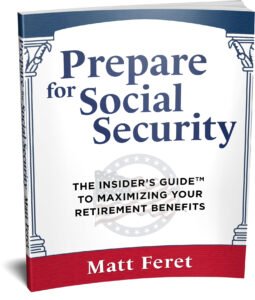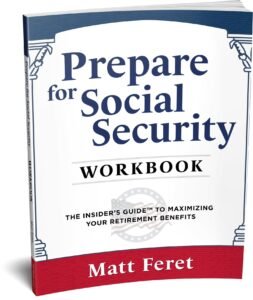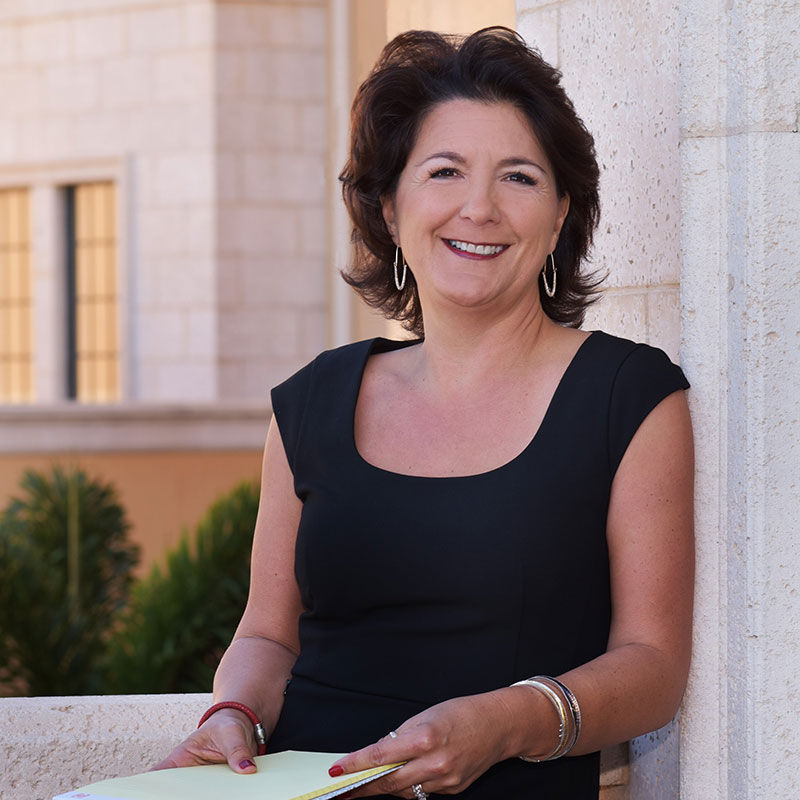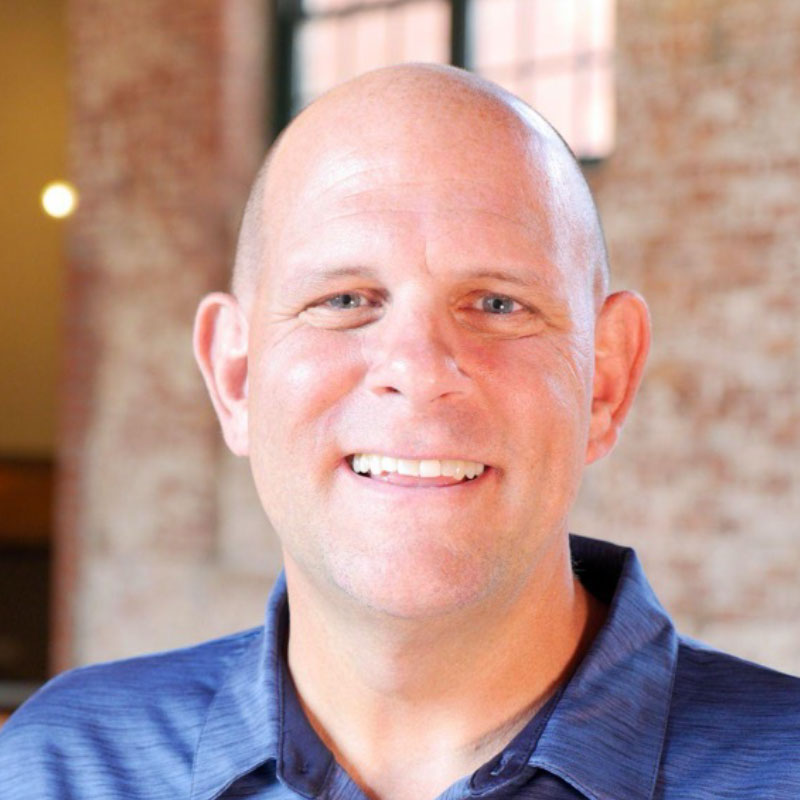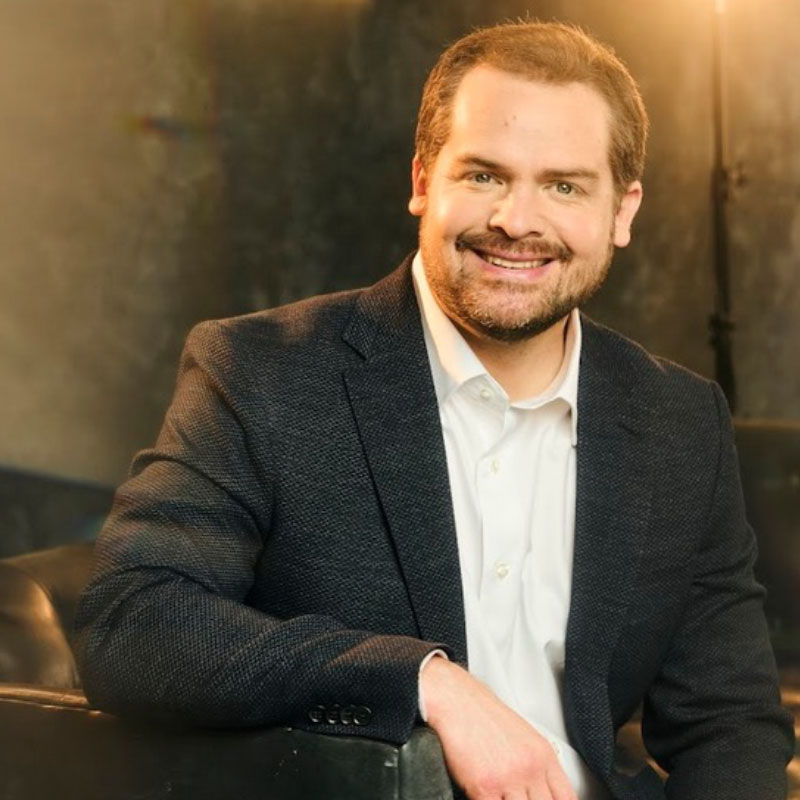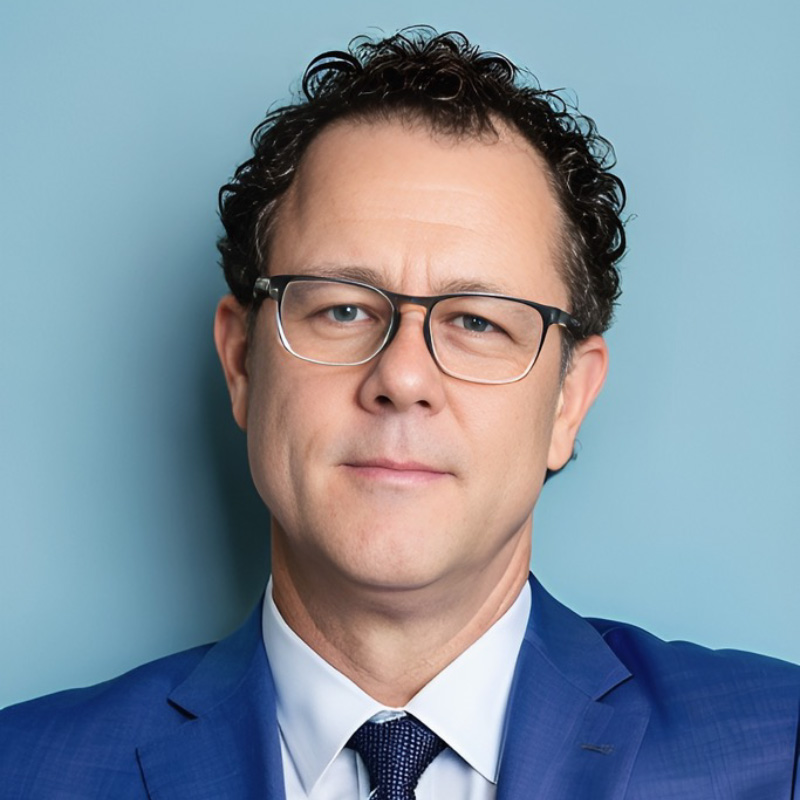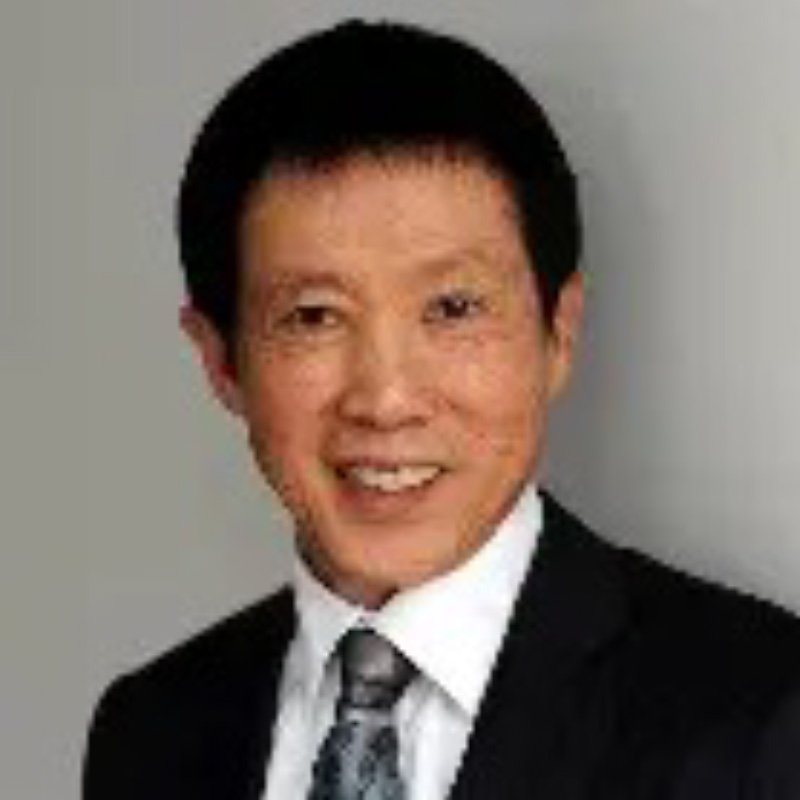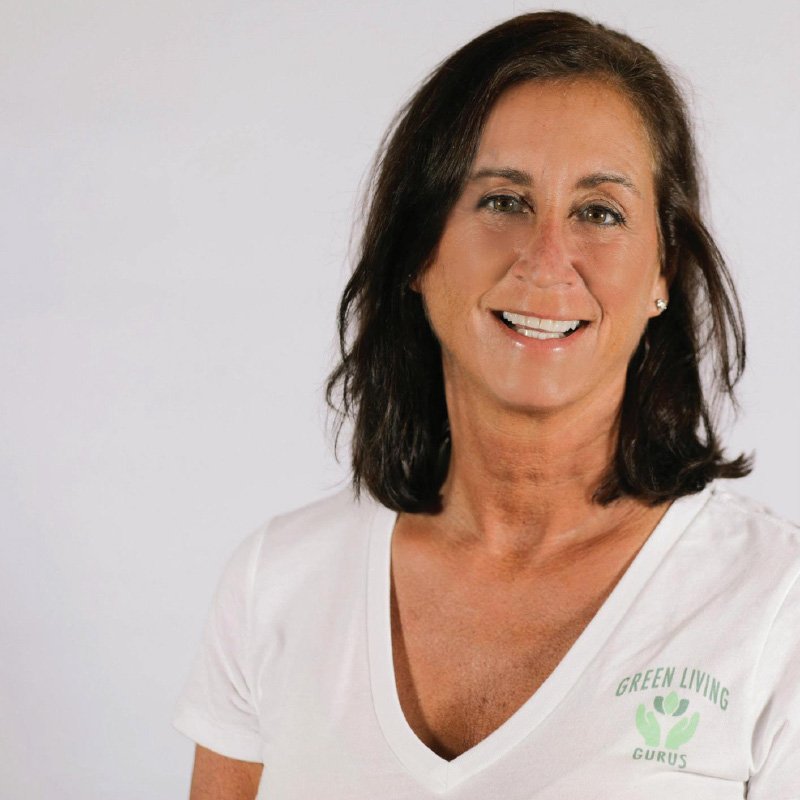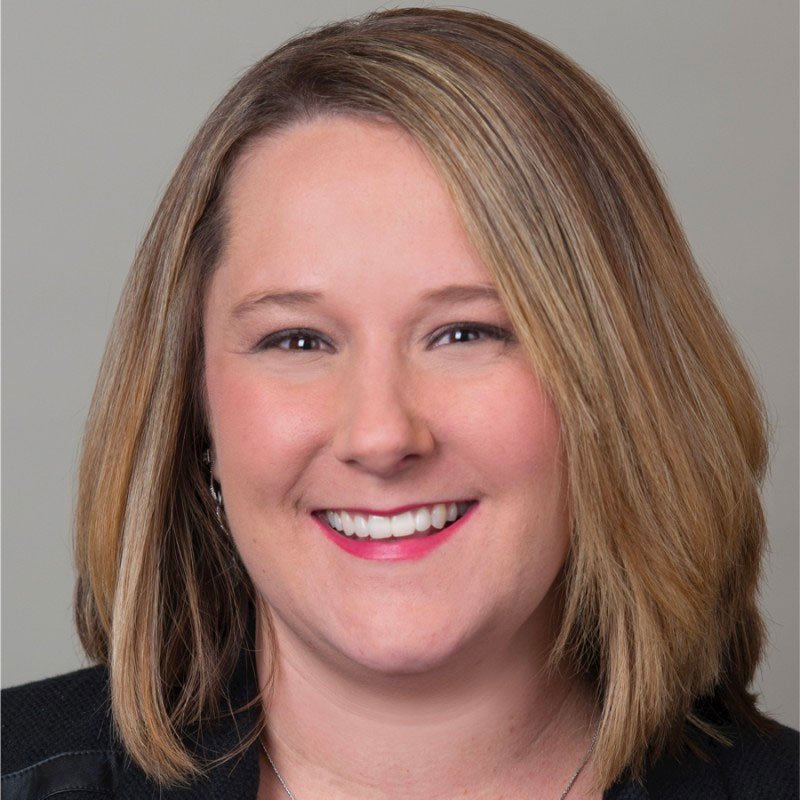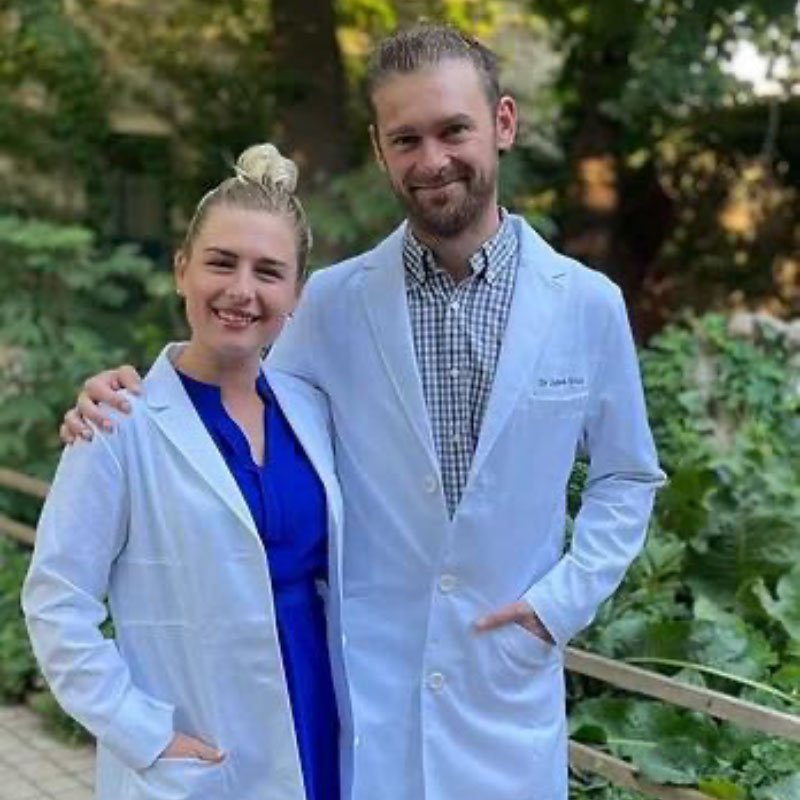#31
Share This:
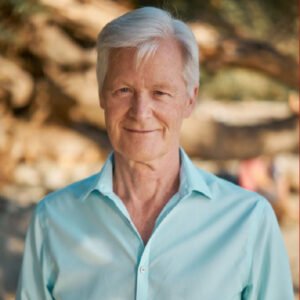
Loneliness, Contentment and Inner Peace with Speaker, Author and Health Food Entrepreneur Udo Erasmus
Udo Erasmus is a fascinating health, wellness, spiritual and human nature educator. Udo is the co-founder of Udo’s Choice line, which can be found in Whole Foods and other health food stores worldwide. He was born in Europe shortly after World War Two and was immediately subjected to unspeakable trauma, tragedy and danger.
On this episode of The Matt Feret Show, you’ll get an insider’s guide to Udo’s journey from losing everything to spending a lifetime of discovery, faith, teaching and providing others the foundations of health, peace, and harmony.
Enjoy!
Listen to the episode on Apple Podcasts, Spotify, Deezer, Podcast Addict, Stitcher, Google Podcasts, Amazon Music, Alexa Flash Briefing, iHeart, Acast or on your favorite podcast platform. You can watch the interview on YouTube here.
Brought to you by Prepare for Medicare – The Insider’s Guide book series. Sign up for the Prepare for Medicare Newsletter, an exclusive subscription-only newsletter that delivers the inside scoop to help you stay up-to-date with your Medicare insurance coverage, highlight Medicare news you can use, and reminders for important dates throughout the year. When you sign up, you’ll immediately gain access to seven FREE Medicare checklists.
Quotes:
"What we should be doing is sitting quietly in the heartache, in that feeling, because it's so close to where your wholeness lives, because your wholeness lives. Now, this is true for every human being on the planet. No matter what language they speak, which gender they are, what race they are, this is part of the way a human being is built. When you get disconnected from being present in the space your body occupies, then a pain goes with that. It's like hunger for food, thirst for water, need to breathe for air. This is need to feel whole for wholeness, for unconditional love."
- Udo Erasmus
#31
Selected Link from the Episode:
Website: https://udoerasmus.com/
LinkedIn Page: linkedin.com/in/udo-erasmus-78949314
Facebook: https://www.facebook.com/theudoerasmus/
Instagram: https://instagram.com/udoerasmus
Udo's Choice, Omega 369 Oil Blend, Brain Health, 32 Fl Oz
Books:
Fats That Heal, Fats That Kill: The Complete Guide to Fats, Oils, Cholesterol and Human Health
The Book on Total Sexy Health: The 8 Key Steps Designed by Nature
Full Show Transcript:
FULL SHOW TRANSCRIPT:
00:00:00 / 00:50:12
Hello, everyone. This is Matt Feret, author of the Prepare for Medicare book series. Welcome to another episode of The Matt Feret Show, where I interview insiders and experts to help light a path to a successful retirement.
Come say hello at themattferetshow.com for show links, notes, websites referenced, quotable quotes, and the complete show transcript. You can also check out prepareforMedicare.com and my new site, prepareforsocialsecurity.com. Both support the books Prepare for Medicare and Prepare for Social Security. I also offer Social Security consulting access on the Prepare for Social Security site as well as a searchable database of every Social Security office in the country. Sign up for my monthly newsletter on either website, and you'll get free Medicare and Social Security checklists, which you can also do on the show's homepage, themattferetshow.com.
Udo Erasmus is a fascinating health, wellness, spiritual and human nature educator. Udo is the co-founder of Udo's Choice Line, which can be found in Whole Foods and other health food stores worldwide. He was born in Europe shortly after World War II, and was immediately subjected to unspeakable trauma, tragedy, and danger. On this episode of The Matt Feret Show, you'll get an insider's guide to Udo's journey from losing everything to spending a lifetime of discovery, faith, teaching, and providing others with the foundations of health, peace, and harmony. Enjoy!
(01:34):
Udo, welcome to the show.
Udo Erasmus (01:36):
Oh, glad to be on. Thanks for having me.
Matt Feret (01:38):
Tell everybody what you do, how long you've been doing it, and how you help people.
Udo Erasmus (01:42):
Well, primarily, I breathe. I'm going to be 81 next month. Breathing is really good, and breathing is, of course, where it starts, because in your mother's womb, you don't breathe. You don't have to do anything. You're actually in deep meditation like a little Buddha. You don't even know you have a body. Everything's taken care of, right? So, you begin your life in deep meditation where your focus is inside your own source, which is inside of you. That source has a foundation of peace and is unconditional love for the body. Life loves your body unconditionally, right?
(02:25):
Then you come out. Then you get to have to get to know the world. Your focus shifts through your senses out into the world. You get disconnected from yourself, and you become present outside, absent inside. In the womb, you were present inside, and absent outside. Then you live your life trying to figure out, "What's this ache?" Loneliness is one good word for it. Try and figure out, "What is this feeling in my chest that is uncomfortable?" Sometimes you call it loneliness, and sometimes you call it longing, and sometimes you call it ache. Sometimes you call it sadness or grief or disappointment or just wanting restless, empty.
(03:09):
There's lots of names for this same feeling, and a whole bunch of different triggers. But this feeling, talking about loneliness, we think it's trying to get connected to somebody, but actually, it's our call to get reconnected to ourselves. Because when we sit with that loneliness instead of doing something, we sit with that loneliness, and then our focus just drops behind it. Behind it, there's no loneliness, and behind that, we feel completely whole and cared for and loved, and content. So, loneliness when you're old is the same as loneliness when you're young. Except when you're young, you have more energy, so you chase it on the outside.
(03:55):
When you get older, you have less energy, and hopefully that gets you to sit still with it a little bit, and discover the magnificence of your incredible being, because that hasn't changed from the time you were in your mother's womb all through your life to the time when you're old has never changed, the same magnificence, the same beauty, the same indestructible. Love and contentment are the source of your own existence within you.
Matt Feret (04:28):
You've got a very varied background. Tell everybody who's listening about the loneliness piece. How have you come to this space in your life where you can talk about, and help people with those feelings of loneliness? It sounds like at any age, but especially as folks get older and life changes happen, aches and pains, loss, changing from a work situation to a different work situation or work into retirement. Tell everybody about your background and how that's helped shape where you are with being able to help people with that concept of loneliness.
Udo Erasmus (05:05):
Well, I'm very lucky. I got everything taken away from me when I was two years old. I was born during the war, so I was a second World War refugee that communists were chasing us in tanks and trucks. My parents had come from Latvia. We were in Poland, so communists chasing us in tanks and trucks, and the allies, the good guys, these are the good guys. We're on the side of the good guys. They were using women and children on horse-drawn hay wagons on dirt roads with no military presence as target practice. They were shooting at us from planes. My mother... It was in winter. My mother... There were dead horses and dead people in the ditches.
(05:49):
My mother felt the roads were not safe, so she went through the fields, one kid on each hand, but she started with six kids, so she had to leave four of them behind. She left them behind on a farm by the road. They then took us to Berlin, and I ended up in an orphanage. Eventually, she made it out, because the fields were safer than the roads. Then her sister heard about it, and she went and hauled us out of our orphanage situation, and then we got reunited. But the point I'm making is when I was a little kid, I lost everything. No culture, no home, no... Literally, everything taken away. No dishes.
(06:42):
We had just clothes we were wearing. Some of those were dirty, because we couldn't wash them, right? I lost everything, and it wasn't safe. I never felt safe. It was confusing, because every day, you heard a different story. So, very early, I got started struggling with, "How does it all work?" Because if you understand how things work, then you get some predictability, and there's a certain amount of safety in that. Well, so I was always trying to figure things out, and doing experiments, and wrecking things because I didn't know what I was doing, but I was finding out.
(07:21):
When I was six years old, I listened to people arguing about released trivial stuff, and this thought came to me. I said, "Man, there must be a way that people can live in harmony." This little cocky voice of a six-year-old who doesn't know how complicated everything is go, says, "I'm going to find that out." That's become the purpose of my existence, how to live in harmony. Of course, how to live in harmony means with myself, and then with you, and then with others, and then on the planet. So, it directed me to myself. I didn't have much on the outside I could rely on, and that's a gift if it takes you to more reliance on what's on the inside, which easily gets lost in a world that's just too comfortable, right?
Matt Feret (08:17):
Yeah. That's a-
Udo Erasmus (08:18):
No, I went through all the-
Matt Feret (08:19):
I was going to say that's a shocking and traumatic event very early on in a very early revelation that you had there. I'm sure 99.9% of people would've reacted differently.
Udo Erasmus (08:32):
It wasn't just a curious thought. It was like, "I need to find out. I really need to know," because it was intense for me. Anyway, and then I got into everything else just like everybody else, the girlfriends and the people, and you love me. Oh, you dumped me. Oh, my heart is broken. Actually, your heart never breaks. Your mind is broken. Your expectation is broken. There's nothing wrong with your heart in the so-called heartbreak. Your heart never breaks. Your heart is empowering unconditional love for your body 24/7, 365, lifelong, never quits on you until body and life part company, right?
(09:17):
But, we call it heartbreak and heartache, and it does feel like your heart is aching. The trigger is that she dumped me, but the truth is that that throws me back on my disconnection from myself, but we don't get told that. Then we go, "Oh yeah, she wasn't the right one. Oh, she found somebody else. Oh, I'm jealous. Oh, I should have done this, and I should have done that, and the self-recriminations and all of that." Finally, you forget because you find somebody else who looks attractive, and then you go for that one, right? Right?
Matt Feret (09:54):
Yeah.
Udo Erasmus (09:54):
It's like how it is, right?
Matt Feret (09:56):
Yeah.
Udo Erasmus (09:56):
But the truth is that the heartache from the heartbreak is not about that other person, the trigger is not the cause. The cause is your normal, natural, necessary disconnection from yourself that begins with your focus going out into the world and away from your inner self. That's what begins heartache, or heartbreak, or loneliness, or longing, or restlessness, or whatever we call sadness, sorrow, grief, wanting, hoping, praying, desperation, separation, isolation. They all are the same feeling in the chest area. It's intense. Then we don't like it, so we try to do something else to take ourselves away from it, distraction, distraction, distraction, distraction.
(10:59):
When what we should be doing with it is sitting quietly in the heartache, in that feeling, because it's so close to where your wholeness lives, because your wholeness lives just like less than a hair spread behind it is your wholeness. Now, this is true for every human being on the planet. No matter what language they speak, which gender they are, what race they are, this is part of the way a human being is built. When you get disconnected from being present in the space your body occupies, then a pain goes with that. It's like hunger for food, thirst for water, need to breathe for air. This is need to feel whole for wholeness, for unconditional love.
Matt Feret (11:51):
You, at a very early age, were able to, in some sense, look outside yourself, and see it something as perhaps an objective issue rather than a subjective one, a looking outside and at six saying, "This is a problem and situation, and I want to go spend my life fixing it," which is not only unique. It's past the word rare. You just went through the early days and dating and everything else. Then how has that changed in your life over the years and over the decades, and how have you come to a space to understand what you just told us?
Udo Erasmus (12:30):
I went through all of that other stuff too, all the subjective stuff. What I think was different for me is there wasn't much on the outside that I thought could make me happy, because I had already seen so much of that, so I had many disappointments. So, I didn't have a lot of trust in the world and in other people, and so you have to trust something. That was always inward directed. I had some experiences of inner experiences, just spontaneous ones of... One of them, I remember when I was maybe 14, I was lying in bed. I was not that socially adjusted. I was pretty much a by-myself kind of kid.
(13:16):
I didn't have many friends. The thought went through my head. I'm not that well socially adjusted, but there is nothing wrong with me, because I was feeling inside, "Wow, there's nothing wrong with me," even though I'm not socially that well-adjusted, and I've stayed away from it because I was pretty shy. I didn't like it when more than two eyeballs looked at me, so I would never show up in front of a group, and talk. Now, I make my living doing that, by the way.
Matt Feret (13:54):
So, your journey in terms of loneliness, and there's a food connection here too, and a biology or a biological connection here as well, so spiritual, biological, and mental. In your own loneliness and or, I guess, mental health journey, when you... I'm going a little chronologically here. In your 40s and 50s or 60s and 70s, when those changes happen, or you haven't dealt with issues of loneliness or loss or trauma in the right way, do you have any practical or tactical suggestions for folks that are going through this thing, or have family members that mom died 10 years ago, and dad's depressed and sad and 71, and things aren't going well? What are some practical pieces at least that you can share.
Udo Erasmus (14:50):
Actually, practicing sitting still, making it a practice every day, not just of working hard and playing hard, but also doing nothing hard. Because if you work hard and play hard, you get burned out. You got to do nothing hard, because in that nothing, in that quietness, in that stillness practice, you rejuvenate. You rest. You get more sleep in meditation than you get at night when you're sleeping. There's research on that. So, I began to become more disciplined about bringing my focus back home to where my wholeness lived, where my wholeness lives, where my wholeness always. Because when I feel lonely, my wholeness is still there.
(15:37):
I'm just focused on what I think I'm missing on the outside, but I'm actually not missing anything on the outside, because I'm whole, right? The outside is always changing, and you know that that's always going to change. You know that if someone is born, they're going to die. When you know what in you never dies, because it's formless to begin with, and is in the energy realm rather than the physical realm, rather than formed realm, then you could actually be happy if a person passed on. They were sick, and their body was failing and breaking down, and there was pain. You get released, your wholeness.
(16:24):
Your love gets released from the cage of the body, and you could be happy for them, and you could remember the love that you shared. You can remember the good times you had. Instead of saying, "Oh, I can't have it. I can't have her now, him now." "Wow, how cool was that? I got to be with this person. We got to have children together. We got to do things together. We got to have fights. We got to have foods. We got to have sex. We got to have so many things that are all part of the incredibleness of being in a body, right?"
Matt Feret (17:14):
Yeah. Well-
Udo Erasmus (17:15):
So, you focus your shift from what I don't have, or what the trauma is, or what the pain is. You shift your focus to something that also exists within you that is always pain free, never gets hurt, cannot die, cannot get sick, is completely healthy, and needs nothing other than for you to focus on it to be experienced.
Matt Feret (17:44):
So it is-
Udo Erasmus (17:44):
Right?
Matt Feret (17:45):
Yes. It's to... I mean, I'm probably not summarizing this correctly, but it's to turn inside yourself. How do I get there? How do I get there if I'm not there right now, if I'm focusing on the loss, or I'm focusing on the pain, and I'm focusing on my feelings of loneliness and doing things to try to mitigate that? What should I be focusing on? How do I take steps to serenity?
Udo Erasmus (18:08):
I think the first thing you say, "Well, what are you focused on right now? So, what are you focused on right now?"
Matt Feret (18:15):
Oh, me?
Udo Erasmus (18:16):
Yeah.
Matt Feret (18:16):
Oh, this podcast interview.
Udo Erasmus (18:19):
Right now, you're focused on me.
Matt Feret (18:21):
Yes.
Udo Erasmus (18:21):
Right now, you're focused on me, and you're having thoughts in your head, so you're focused on the thoughts in your head. Then you bring question out of that, so you're focused on your voice box, right? Then you're focused on your ears, because you're listening to what I'm saying, right?
Matt Feret (18:35):
Yes.
Udo Erasmus (18:36):
So, where is your... The first question, where is my focus right now? Well, right now, my focus is in my loneliness, what I don't have, what I'm missing because somebody died, or somebody treated me badly, or something went wrong, or my leg got broken, or whatever it is. That's where I'm focused. When you know where you're focused, if your focus is in the space that your body occupies but outside the cortex where all your words are, that's where your wholeness lives. So yes, if you know your focus is there, but you could bring it here, then you literally do whatever it takes to move your focus, because you have the freedom to focus on anything you want to focus on.
(19:25):
If you want to be a victim, then you focus on your losses. If you want to be a champion, you focus on your wins. What is the champion? What is the most champion thing about you is that you are a child of God. You are a Christ child, unconditionally loved, living, loving your body unconditionally every moment of every day and every moment of every night. So, it's a matter of learning how to move your focus. That's not hard to do, because I can see while I focus on the lamp over there, and I'm going to focus on the lamp over there. Okay, I'm going to focus on the ceiling. Okay, I'm going to focus on the floor.
(20:11):
Okay, I'm going to focus on my chest. Okay, I'm going to focus on what my bum feels on the seat, so we are actually very good at moving our focus, but we play helpless when we say, "Well, bring your focus inside the space your body occupies," because we don't do that very much so that we think it must be complicated and difficult. It's not... It just takes a little time. Sit quietly. I'll lead you through a short one, and then we'll go onto something else.
Matt Feret (20:39):
Sure.
Udo Erasmus (20:40):
Go like this. You sit down, and close your eyes. See how still you can become. Then see how deeply you can go into that stillness, and see how long you can stay there. While you're doing that, by the way, if you're driving, don't listen. Listen later. We're going to go get really quiet. How still can I be? How long can I stay there? Then breathe slowly and comfortably without pushing and pulling your breath soundlessly. Then feel what there is to feel, because you're already in the space your body occupies. Then the more often you do that, the easier it becomes. The more often you do it, the deeper you go. The deeper you go, the more rich is the experience.
(21:51):
It has nothing to do... This is the experience between you and the power that creates the universe. So, you get in touch with that, and then it comes a point. You come out. Then your focus goes out all over the place again, yet then you lose this feeling. So at some point, it will occur to you, "Damn, if I can go into that space, I actually want to stay in that space while I'm doing what I do in the world." Then you try to drag it with you so that you're actually feeling your presence, and doing the simple things you need to do in the world, like brushing your teeth or picking your nose or whatever it is you're doing.
(22:40):
You can do that without losing connection with your heart. Then your life begins to become richer and richer and richer.
Matt Feret (22:50):
Is what you're describing meditation, something less than that, or something more than that?
Udo Erasmus (22:56):
Some people call it mindfulness, but mindfulness is wherever you focus, be aware that you're focused. Be aware where you're focused called self-knowledge. Some people call that the most important kind of knowledge, because what you on the outside is all theoretical. What you know on the inside is experiential, and experience is always more powerful than theory. Some people call it meditation, so it doesn't matter what you call it, but heartache is the call to you coming back home inside, and experiencing what it feels like to be alive in human form.
(23:51):
You think about it. I mean, we think about it. We've been on this planet for 200,000 years. We know more about our iPhones and our watches and our devices than we know about ourselves, because our senses take us out into the world automatically. Coming back has to be deliberate, and the call is heartache. Nobody tells us that heartache is not about the woman who dumped me, that heartache is actually me having disconnected from myself naturally, normally, necessarily as part of the human journey, but not finding your way home before you die is unfortunate. Then you worry. Then you fear death, and then you make it harder on everybody, your kids and yourself and the caretakers that help to check you out, because you haven't done your homework.
(24:47):
So, this is homework. This is the most important homework. If eight billion people did that homework, and felt that peace and felt that love, this would be a completely different planet. Every problem we have on the planet, whether it's political or environmental, or relationship wise, or international, or crime and murder and wars and all of that, none of that would happen if eight billion people did their homework, and felt how incredible their life is, and how fulfilled they are so they don't have to steal other people's stuff, because they think they need it to be fulfilled.
Matt Feret (25:28):
Well said. I would be not a good interviewer if I didn't also ask you about all of your other items that you've spent a lifetime gathering. There are books. There are... There's health. There are degrees. There's a whole lot in there. So, what if any of those things over the course of your life... Obviously, you're much more well versed in everything else, including loneliness, but there's a lot more to you. What other hearings have you found over your life's work and your experience that go hand in hand with mental health, and the loneliness piece, and reframing your brain in the way you've described?
Udo Erasmus (26:11):
I do this first because every issue eventually will come back to this, every issue you have. So when you talk about... What was it you... Oh yeah, processing change, so people have a lot of problems processing change, especially in the last three years with all the lockdowns and all of the, "You can't do this, and you can't do that." So my quip was, "If you can't go outside during the lockdowns, go inside," but not everybody knows how to do that, but a lot of people started thinking about, "Oh my God, I can't depend on my distractions. Oh my God, what is my life really about," and started going more in that direction.
(26:52):
So, you could say COVID has been incredible to change that focus worldwide for a lot of people, but it's also driven lots of people crazy, because they don't know how to go inside. So it's like, "Well, I can't do that, and I can't do that, and you're telling me this, but somebody else tells me the opposite." Either one side's lying or everybody's lying, so what do I depend on? How do I deal with the change? Who's right? Who's wrong? Should you get vaxxed? Is the vax more dangerous? There's so much stuff going around, and how do you know? Well, you don't know, because you are living in a world of change. You're living in a world of people who have agendas, and agendas make you dishonest.
(27:45):
So, you don't tell the truth about truth if it depends on you, if when you told the truth, you would lose your money. Then you have to hype it, twist it, distort it, generalize it, and outline. So, processing change, you live in a world of change. Environment changes. People change. Thinking changes and emotions change. That's the changeable part of human nature, but the inspiration part, and the unconditional love part, and the peace part don't change. So when you're in the middle of everything that's going crazy, way too fast, way faster than you can handle, you need to be able to suck back. That's why I say it all ends up here, because that also exists within you.
(28:47):
So, you can focus on the change, and you can move your focus to the no change, balance. It's like a kid, a little kid holding mother's finger in a shopping mall, holding mother's finger looking around, "Oh, look at that. Oh, look at that. Oh my God. Oh, look at this." They're everything, and it's wild. But the moment it loses the connection to mom's finger, "Ah, the world's unsafe, right?" Well, mother's finger is the peace inside, the love inside. You have it. It never leaves you, but your focus disconnected from it, and then you get caught up in all the changes and, "They should be doing this, and why aren't they doing that?"
(29:34):
Well, my parents always said that that was really bad. So then you get into all of that, and then in the change in your head, and it drives you crazy. So, my suggestion is do as much of that as you want, but also cultivate moving your focus to the quiet place, and get as good at that as you've become tripping in your head about what's going on in the world of change. One of the masters from 5,000 years ago said, "The wise more neither for the dead, nor for the living." When you are in the eternal, death is not a problem, and living is not a problem. All these crazy things people do is not a problem.
(30:38):
From here, it's not a problem. From here, it's a problem. This is 100% for you. Your heart is 100% for you. Your mind is always 50% for you, and 50% against you. That's just the nature of it. So being able to move your focus to the place where you have your foundation is really important. I don't know if I want to say more about processing change. That's how I pressed you. By the way, when you sit in peace, and you look at what's changing, there's a thousand things that you don't need to have an opinion about. There's a thousand things you don't have to say to yourself, "Well, they're doing that, but they should be doing that, and therefore I'm really angry, and therefore..."
(31:28):
Then you trip yourself out into your own chemistry, right? Most of the things that we take... Even the conservatives and the Republicans and the Democrats always at each other's heads, they're never talking about the heart. They're always talking about stupid ideas, and they're stupid on both sides. One side would be wants freedom without responsibility, and the other side wants responsibility without freedom. Actually, freedom comes with responsibility. If you try to separate freedom and responsibility, you end up half-assed, right?
Matt Feret (32:13):
Yep.
Udo Erasmus (32:13):
Freedom. Why? Because what you do has consequences. Everything you do has consequences. There's the freedom, what you do, and the consequences is the responsibility. Therefore, before you do stuff, think about the consequences. That would be the responsible thing to do, right?
Matt Feret (32:33):
Right. If I-
Udo Erasmus (32:34):
If you're-
Matt Feret (32:35):
Sorry.
Udo Erasmus (32:36):
Go ahead.
Matt Feret (32:37):
If I've lived this long, and your concepts are new to me, or I feel like I should try them, where do I start? If I've been living a certain way with a certain thought pattern, and not looking inwardly and not reflecting, and not finding quiet spaces, and not meditating or being oneself, how do I begin this? How do I start?
Udo Erasmus (33:00):
Well, I think the biggest thing that I'm offering is, "Is it possible that it's true what I'm saying, that there is that peace in you, that there is that unconditional love in you?" That peace is actually everywhere all the time, but only peace can recognize it. So if you don't see peace everywhere, it's because you're not looking from peace in your own being, because only peace sees peace. The first thing is is it possible that what I'm saying is true? Then the second one is, "Are you interested?" If you say yes... If you say no, I'll just forget it. This is all BS. He's just tripping his head.
(33:48):
Then you're not going to pursue it, right? So, you say, "Okay, what if it's true? Would you want to know it?" If the answer to that is yes, you're already on the track, because then when it's interesting to you, and you've acknowledged that to yourself, then you will start to see the signs, because the signs are everywhere. If peace is everywhere, the signs are everywhere. The rose blooms in peace. The war in the Ukraine is taking place in perfect peace, but the warriors are not focused on the peace. The warriors are focused on, "You're my enemy. I'm going to kill you. You're my enemy. I'm going to kill you." Then in perfect peace, they have a war, right?
(34:33):
So, if you think it might be true what I'm saying, or there might be something to it, and you think it's possible that there's something within you that is that good, are you interested? If you're interested, sit with you. Then the next step is you don't have to do anything except take five minutes a day, or 10 minutes or an hour or six hours or whatever. Take some time every day to literally put aside everything, shut your door, turn out your lights, be in a comfortable place that's safe, so you don't have to be disturbed. Then spend a little bit of time bringing your awareness to heartache behind heartache into breath, and discover how peaceful it is in that place.
(35:28):
Then just do more of it. I've been doing this practice that I do for over 50 years. I was... It started with that experience, and then I was like, "Yeah, but now this experience is becoming a memory. How do I stay in that experience on a day-to-day basis?" I was interested, and I met somebody who said, "The peace you search for in the world is within you, and I can reveal you that peace." Of course, I'm a war baby, so that was an important statement for me. I don't remember anything else he said. He's talked for two hours. That's the one sentence I remember.
(36:03):
I said, "Ah, I don't know if you can teach me. I doubt it, but I am interested in peace, and I definitely want peace. So, let me check it out because if you can do it, I don't want to miss it. If you can't do it, I'll just keep looking, but I was interested in peace." Then you listen to conversations. If you want peace in your life, you'll be on a bus, or you'll be in a shopping center, or standing in a lineup. You'll hear somebody say something about peace. You'll hear that, and you'll miss anything else that anybody else is saying, because you're primed for it.
(36:41):
So, it's all... So, you bring as much to peace as peace brings to you, because peace can be everywhere, and you can be completely not in touch with it, because you're thinking about how you can screw your neighbor on the next deal or whatever it is, right? Then there are books that you could... Maybe you might find a book on peace, or you might find a group that claims to practice peace. You might find a teacher who teaches peace. It's always going to-
Matt Feret (37:17):
Do you have any book suggestions or places to look, or any book-
Udo Erasmus (37:20):
The last book before I met the guy who showed me the method that I practiced was Yogananda. It was called Autobiography of a Yogi. It was pretty famous. The Prophet, Kahlil Gibran's Prophet is a little bit in that direction. You can read your Bible, but don't read your Bible for the church. Read your Bible for yourself, because people have interpretations, and then they try to tell you what the interpretation should be. This is about your own experience of your own existence. That has to be experiential. You can't just do a head trip. You can't just say, "Oh yeah, I believe in Jesus, and Jesus is going to save me." Then when you die, your mind goes away.
(38:11):
Where's your Jesus? You have... Actually, people who are religious have a harder time dying than people who are not religious, because that Jesus, Jesus, Jesus, Jesus in it. Where's Jesus when they're dying, because beliefs can save you from other beliefs, but they can't save you from reality, and dying is not a belief. Dying is a reality. Then when you go into that, and you let go, and it's okay. Dying is actually an ecstatic experience. It's something to look forward to when your time comes, right?
Matt Feret (38:47):
You mentioned the name. There was an individual that helped you with this.
Udo Erasmus (38:51):
Then there's Bhagavad Gita. There's another, and then there's some Buddhist scriptures. There are people in Lao Tzu and Huang Po, and there's a whole bunch of them. They're all different people who have different expressions of their search within themselves for the word of God, the word of life, the word of universe, whatever you call, or the wisdom of the universe that runs everything. So, there's lots of books. His name is Prem Rawat, R-A-W-A-T. You can find him at timelesstoday.com. I met him when he was 14. He's now 65. He's been talking about this forever. So, one of the questions I could ask your listeners who are my age, why did you never notice him before? Why did you never hear of him before?
(39:50):
Maybe you did but... It's because wherever your focus goes, that's going to become your... That's going to be your truth. That's going to become your base of knowledge, because whatever you pay attention to, you get to know it. You get to know how it works, and how it changes, and what the color is, and what the shape is, and how the movement goes, and what sound it makes. So whatever you focus on, that becomes your knowledge base. So if it was always about money, then that's going to be a knowledge base, and you probably know a lot more about money than I do. If it was always... Like, if you are flowers gardener, then you know a lot about flowers, and you might know all the Latin words for them.
(40:36):
I wouldn't do that. People when they... I take pictures, photos. I'll take a picture of a flower, and somebody stop and say, "Oh, what kind of a flower is that?" My answer's always, "I don't know, but it looks like that." See, I don't have to know the Latin name. But for some people, that's important. Then the other thing that I work with too is when you get older, lots of people have lots of health issues, because they've been doing things wrong. Wrong means out of line with nature and your nature for a long time. The longer you do it, the more it catches up with you. Fundamentally, we were made for fresh, whole, raw, organic foods plus water, plus air, fresh water, fresh air, mostly plant-based for human beings.
(41:31):
When you look at what you have in your kitchen, in your cupboards, you can look at how close is this product and this product and this product and this product and this product to fresh, whole, raw, organic, plant-based. In the plant-based world or in this nutritional world, the most neglected arena is the essential fatty acids and especially the omega-3. Omega-3 is super sensitive to damage by light, oxygen, and heat, so mostly when we get it, it's damaged. One of my claims to fame is I developed a method for making oils with health in mind by making a very tight production system that prevents light, oxygen, and heat from damaging the oils. So, making oils with health in mind is an industry that I developed starting in 1980 when I got poisoned by pesticides. That's number one.
(42:31):
Number two is if you cook foods, you actually put a load under your digestive system that is more than twice as high as what you do when you eat raw foods, because in raw foods are enzymes. When you choose those foods up, you break down the structure of the cells, and the enzymes then do 60% of the digestion for you. Well, if you cook your food, you destroy the enzymes. Your body now has 60... It now has two and a half times more work to do than it was intended to do by nature, by life, by the cosmos, and that'll catch up with you. Then you start to have digestion problems. So if you cook your foods, you need to replace the enzymes you destroyed when foods were cooked. I do that. I work with enzymes as well.
(43:21):
Then the third one is if you were a creature running around naked in nature, eating raw foods, on those foods are friendly bacteria that are really important for gut health, and have ramifications in mood, in liver function, in cardiovascular function, in digestion function, in just about everything. Those are called probiotics. When you cook foods, you kill them. When you process foods, you kill them. So when you eat your foods processed and cooked, you need to replace the probiotics as well. You got to make sure you have lots of fiber in your diet that comes from plants, not animals, and that makes digestion...
(44:09):
That feeds the probiotics, so they do the best job in your gut. Then there's herbs and spices, bitters particular for liver and digestive function, but there's tons of herbs and spices for cardiovascular health, for brain health, for vision, for bone health. It goes on and on and on and on. That was... Nature's pharmacy was not the pharmaceutical industry. Nature's pharmacy was the plants that grow on the planet.
Matt Feret (44:41):
How do people find more about all of the other things that you do as well on the internet? How do we find you? How do we find these things?
Udo Erasmus (44:50):
I have a website, Udo's Choice, U-D-O-Schoice.com. That's where we talk about the products and the physical health stuff. The products I work with are on there. You find those in the health food stores. The oil is in the fridge, in the supplement section, in the health food stores so are the probiotics. Don't buy probiotics that are not in the fridge. Don't buy oils that are not in the fridge, and don't ever use oils for frying if health is what you're trying to chase. Then the enzymes, usually find them on the shelf, mostly in the health food, in the natural foods trade. That's the one.
(45:29):
Then this other stuff that's a work in progress on a website called The Udo, T-H-EU-D-O.com. That's totally a work in progress. I'm still developing what we are talking about, total health based in nature and human nature and the nature of human nature. Those are the two topics that I'm working on that... Unbelievable, I'm going to be 81 next month, and I'm having the time of my life. I have no aches or pains. I had the beginnings of arthritis when I was 38. It wasn't really serious yet. I don't have nothing. I have nothing now.
(46:09):
It's changes that I've made, and being able to be calm and quiet is extremely good for health. So, you want to do that too, both in terms of the contentment and in terms of the feeling loved. I've liked to take on the areas that got the least attention, because those are actually the most important areas because they're not getting attention [inaudible 00:46:36].
Matt Feret (46:36):
The hardest topics to talk about.
Udo Erasmus (46:38):
They're not... It was all private for me, all this inner stuff, until 2001. When 9/11 happened, I realized, "Oh my god, discontent people will always spread discontent, and if those of us who are content, and I claim to be one of those people, if we don't spread contentment faster than they spread discontent, guess where we're headed." At that point, I started trying to figure out how do I talk about this stuff? How do I even talk about it? So, I'm now 21 years into this particular topic, and I think I'm starting to get pretty good at it.
Matt Feret (47:15):
I do too. It's been a fascinating conversation. Last question is what I always ask, what question did I not ask in the course of this interview that I should have?
Udo Erasmus (47:24):
No, I think, you did an excellent job. How do I know? Because I know what the story was that I told, and I didn't leave anything out. I'm doing it with you, so you made that happen.
Matt Feret (47:38):
Thanks so much for sharing with us Udo. Make sure to hit Matt Feret show website for links and show notes. Until next time to your wealth, wisdom, and wellness. I'm Matt Feret, and thanks for tuning in.
(47:54):
The Matt Feret Show, Related Content Publications, and MF Media LLC is in no way associated, endorsed, or authorized by any governmental agency, including the Social Security administration, the Department of Health and Human Services, or the Centers for Medicare and Medicaid Services. The Matt Feret Show is in no way associated with authorized, approved, endorsed, nor in any way affiliated with any company, trademark names or other marks mentioned or referenced in or on The Matt Feret Show. Any such mention is for purpose of reference only. Any advice, generalized statistics, or opinions expressed are strictly those of the host and guests of The Matt Feret Show.
(48:33):
Although every effort has been made to ensure the contents of The Matt Feret Show, and related content are correct and complete, laws and regulations change quickly and often. The ideas and opinions expressed on The Matt Feret Show aren't meant to replace the sage advice of healthcare, insurance, financial planning, accounting, or legal professionals. You are responsible for your financial decisions. It is your sole responsibility to independently evaluate the accuracy, correctness, or completeness of the content, services, and products of and associated with The Matt Feret Show, MF Media LLC, and any related content or publications.
(49:10):
The thoughts and opinions expressed on The Matt Feret Show are those of the host and The Matt Feret Show guests only, and are not the thoughts and opinions of any current or former employer of the host or guests of The Matt Feret Show, nor is The Matt Feret Show made by, on behalf of, or endorsed, or approved by any current or former employer of the host or guests of The Matt Feret Show.
LEGAL CONDITIONS:
Matt Feret/MF Media, LLC owns the copyright all content and transcripts of The Matt Feret Show, and themattferetshow.com with all rights reserved, as well as right of publicity. All rights reserved.
No part of this publication may be reproduced or transmitted in any form or by any means, electronic or mechanical, including photocopying, recording, or by any information storage and retrieval system without written permission of the publisher, except for the inclusion of brief quotations in a review. You are welcome to share the below transcript (up to 500 words) in media articles, on your personal website, in a non-commercial article or blog post, and/or on a personal social media account for non-commercial purposes, if you include attribution to “The Matt Feret Show” and link back to the themattferetshow.com website.
WHAT IS NOT ALLOWED: No one may copy any portion of the content or use Matt Feret’s name, image or likeness for any commercial purpose or use, including without limitation inclusion in any books, e-books, book summaries or synopses, or on a commercial website or social media site (e.g., Facebook, Twitter, Instagram, etc.) that offers or promotes your or another’s products or services.


